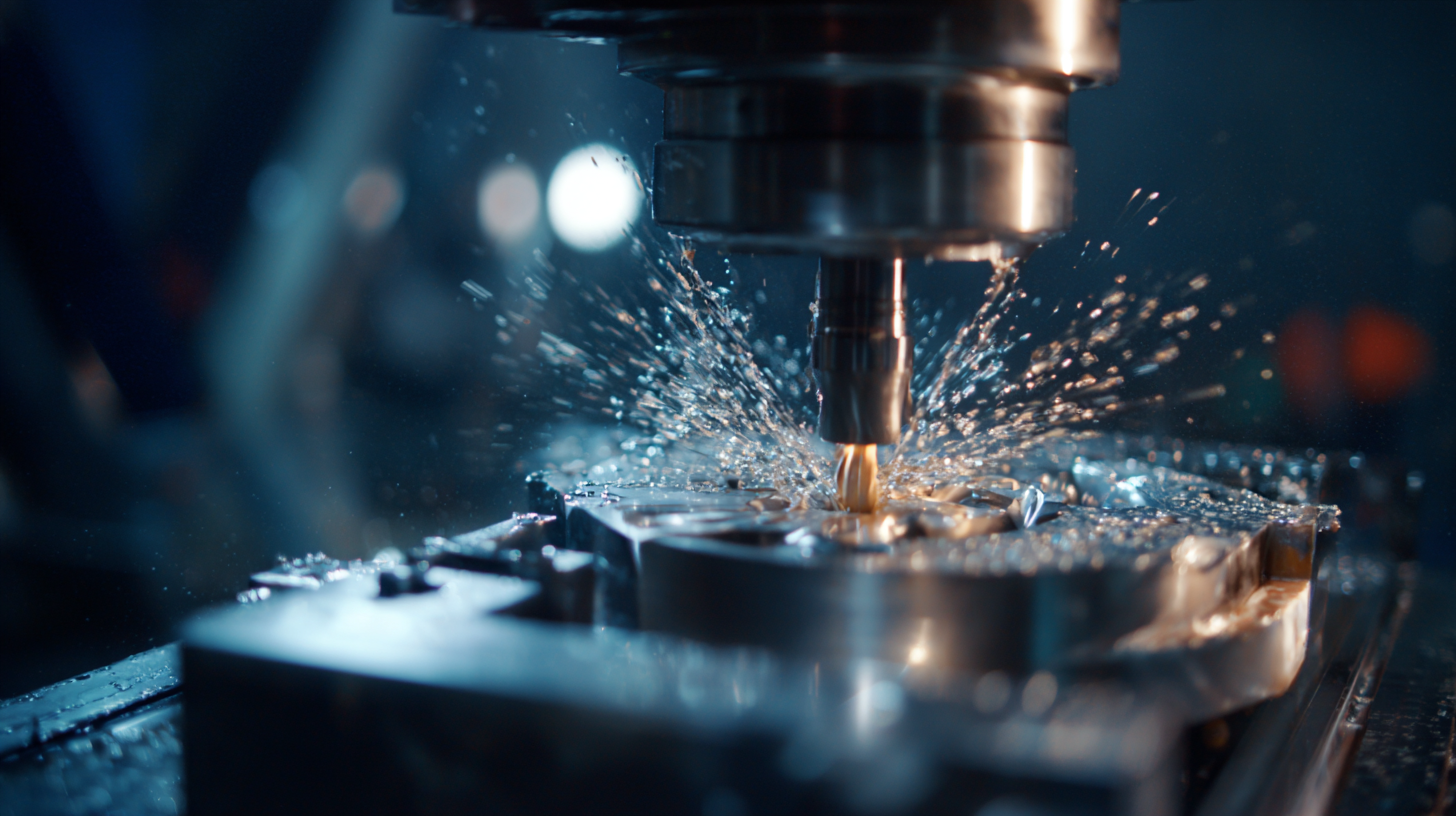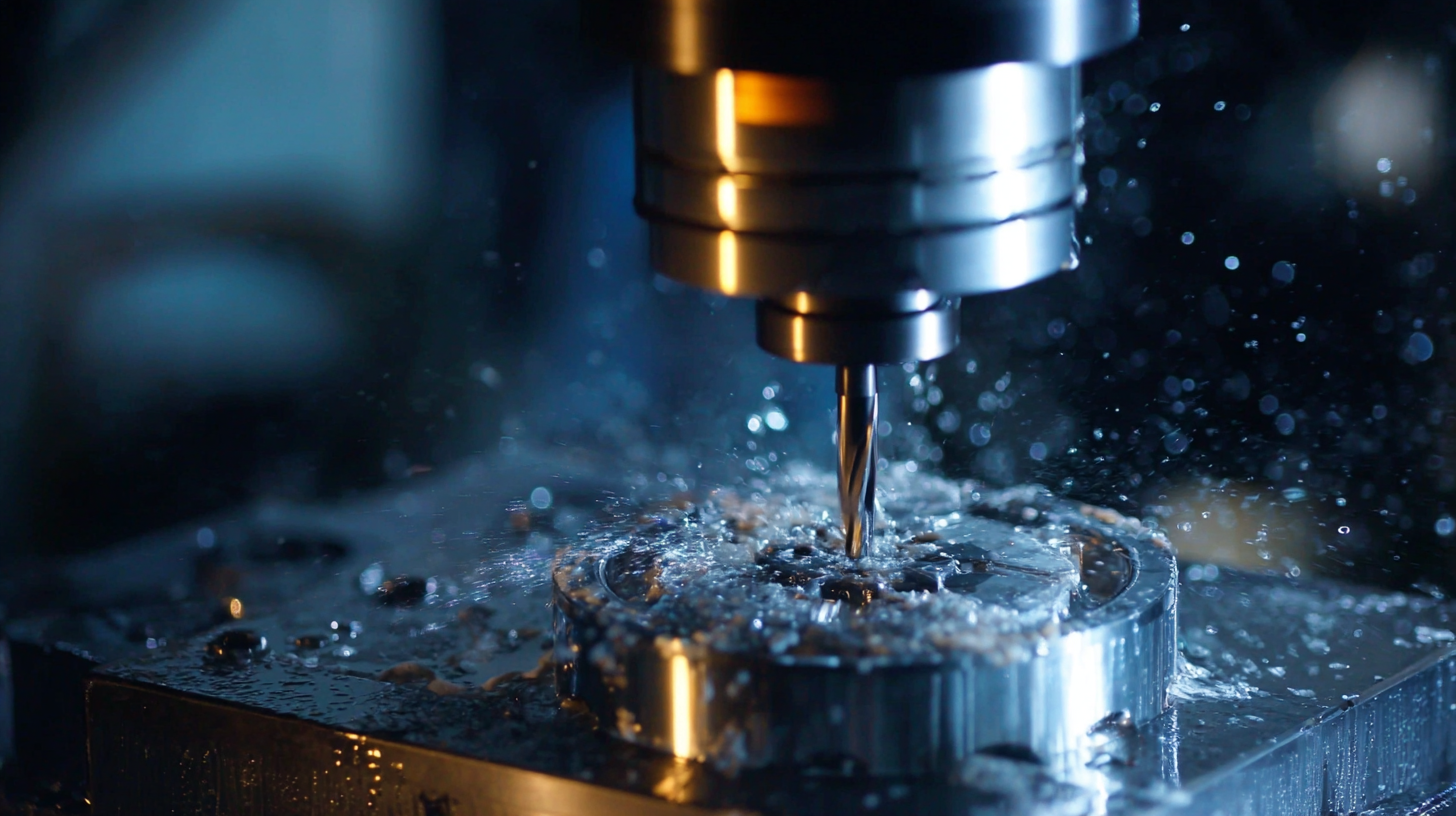5 Ways CNC Machining and Manufacturing Transforms Your Production Process
As industries continue to evolve, the integration of CNC machining and manufacturing has become essential for streamlining production processes and enhancing operational efficiency. According to a report by Grand View Research, the global CNC machine market is expected to reach $100.5 billion by 2027, highlighting the growing reliance on this technology across various sectors. CNC machining and manufacturing not only improves precision and reduces waste, but it also allows for greater flexibility in production, enabling manufacturers to quickly adapt to changing demands. The adoption of advanced CNC technologies could lead to a productivity increase of up to 30%, as per a McKinsey report. This transformation is crucial for companies aiming to maintain a competitive edge in today's fast-paced market, making it imperative to explore the innovative ways CNC machining and manufacturing can revolutionize production processes.

Enhancing Precision: The Role of CNC Machining in Shaping Production Accuracy
CNC machining plays a pivotal role in enhancing production accuracy across various industries. With the global CNC machines market projected to reach USD 170.4 billion by 2033, growing at a CAGR of 9.80%, it is evident that more manufacturers are recognizing the importance of precision in their production processes. This remarkable growth can be attributed to the ability of CNC technology to produce intricate components with minimal human error, thus ensuring consistency and quality in manufacturing.
In addition to providing accuracy, automated calibration systems are transforming how manufacturers maintain measurement precision. These systems minimize the reliance on manual calibration processes, paving the way for improved operational efficiency. The global precision turned product manufacturing market is anticipated to reach USD 196.11 billion by 2034, underscoring the surge in demand for precisely manufactured parts.
Tips: Invest in CNC technology to minimize errors and boost production efficiency. Embrace automated systems for calibration to enhance measurement accuracy. Regular training for personnel on CNC operations can further prevent inaccuracies and maintain high production standards.
Reducing Lead Times: How CNC Manufacturing Speeds Up the Production Cycle
CNC machining has revolutionized the production landscape by significantly reducing lead times, thereby accelerating the entire manufacturing cycle. Traditionally, the production process often involved lengthy setup times and manual adjustments, which could slow down output and complicate workflows. However, with CNC technology, manufacturers can automate these processes, allowing for quicker setup and programming, which leads to faster completion of projects. This efficiency ensures that products reach the market promptly, allowing businesses to meet customer demands without delay.
Moreover, the precision of CNC machining contributes to minimizing errors in production, which can further streamline the manufacturing cycle. Automated machining not only enhances speed but also maintains consistency and quality across large batches. This reliability means that businesses can shift more focus towards innovation and development, rather than spending time on remedial measures for production flaws. As a result, companies can achieve higher volumes of output in shorter time frames, solidifying their competitive edge in the industry.
5 Ways CNC Machining and Manufacturing Transforms Your Production Process
Cost Efficiency: The Financial Benefits of Adopting CNC Technologies in Manufacturing
Cost efficiency is a primary advantage of adopting CNC technologies in manufacturing, significantly influencing a company's bottom line. According to a report by Market Research Future, the global CNC machine market is expected to reach $100 billion by 2025, highlighting the growing investment in these technologies. By automating production processes, companies can reduce labor costs and minimize human error, leading to higher overall productivity. A study from the National Institute of Standards and Technology (NIST) revealed that manufacturers utilizing CNC machines could see productivity enhancements of up to 50%, showcasing how these tools not only save time but also generate substantial savings on operational expenses.
Furthermore, CNC machining offers precision and repeatability, which leads to reduced material waste—a critical factor in cost efficiency. According to the SME (Society of Manufacturing Engineers), improper machining can cause material wastage rates as high as 30%. By implementing CNC technologies, companies can improve their material utilization, drastically cutting down costs associated with leftovers and rework. This capability is particularly valuable in industries where margins are tight, allowing businesses to stay competitive while optimizing their production lines. The financial benefits of CNC adoption exemplify a strategic shift towards more cost-effective manufacturing solutions in today's market.
Customization Capabilities: Tailoring Products with Advanced CNC Machining Techniques
Advanced CNC machining techniques have revolutionized the customization capabilities in manufacturing, allowing for unparalleled personalization of products. With the rise of automated CNC machining services, engineers can now tailor components with intricate specifications, enhancing both functionality and performance. According to industry reports, CNC machining can reduce lead times by up to 75%, enabling faster product development and iteration. This is crucial in competitive markets where agility and responsiveness can determine success.
Moreover, the introduction of advanced features in CNC machining has further empowered manufacturers to achieve higher precision and complexity in designs. Techniques such as multi-axis machining facilitate the creation of complex geometries that were once difficult or impossible to realize. A recent analysis indicates that manufacturers utilizing CNC machining report a 30% increase in operational efficiency, primarily due to the reduced need for manual intervention and the enhanced ability to produce bespoke components. This transformation leads to significant cost savings and allows companies to explore innovative solutions tailored to specific customer needs.

Improving Material Utilization: CNC Machining's Impact on Waste Reduction in Production
CNC machining has revolutionized the manufacturing landscape, especially in terms of material utilization and waste reduction. According to a report by the American Society for Metalworking and Manufacturing, companies that implement CNC machining technology can reduce material waste by up to 30%. This significant decrease not only saves costs but also contributes to more sustainable production practices. By leveraging precision and automation, CNC machines maximize the use of raw materials, ensuring that every piece is utilized effectively.
To further enhance material utilization, consider implementing a few best practices. First, regular maintenance of CNC machinery can improve accuracy and efficiency, reducing errors that lead to waste. Secondly, investing in advanced software for cutting path optimization can minimize scrap material during the machining process. A recent study published in the Journal of Manufacturing Science and Engineering highlights that optimizing cutting paths can yield a 15% reduction in leftover scrap.
Another effective tip is to conduct regular audits of your machining processes. By analyzing data on material utilization and waste generation, manufacturers can identify areas for improvement and implement targeted strategies. Reports suggest that companies actively tracking these metrics can achieve an impressive 20% increase in overall efficiency, translating to better resource management and cost savings in the long run.

We Meet Our Clients Needs.
Meeting the diverse needs of our clients, we have complete machining facilities for everything from single part prototypes to large quantity production. Our small size is one of our biggest assets. It allows us to control costs and maintain the highest of standards.
Quality orientated and delivery always on time or earlier than originally promised.
Strongly recommend MSD.
